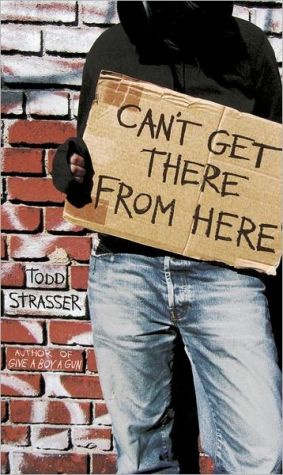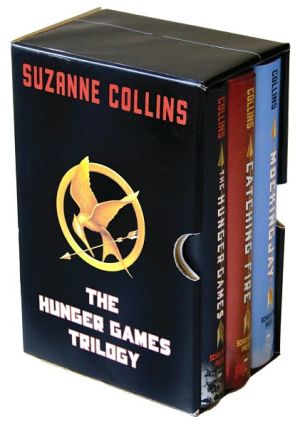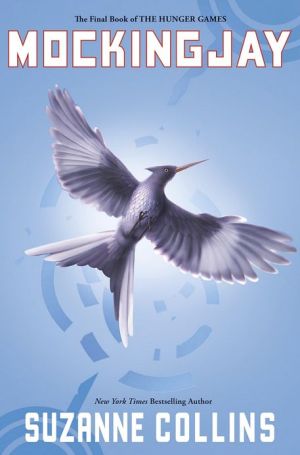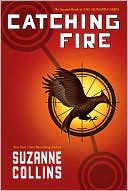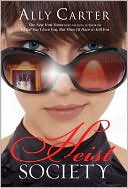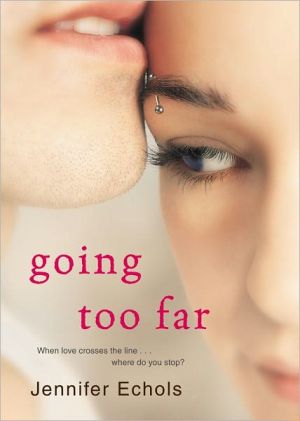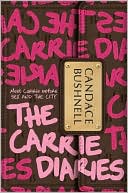Can't Get There From Here
Tired of being hungry, cold, and dirty from living on the streets of New York City with a tribe of other homeless teenagers who are dying, one by one, a girl named Maybe ponders her future and longs for someone to care about her.\ \ Tired of being hungry, cold, and dirty from living on the streets of New York City with a tribe of other homeless teenagers who are dying, one by one, a girl named Maybe ponders her future and longs for someone to care about her.\
Search in google:
Her street name is Maybe. She lives with a tribe of homeless teens — runaways and throwaways, kids who have no place to go other than the cold city streets, and no family except for one another. Abused, abandoned, and forgotten, they struggle against the cold, hunger, and constant danger.With the frigid winds of January comes a new girl: Tears, a twelve-year-old whose mother doesn't believe Tears's stepfather abuses her. As the other kids start to disappear — victims of violence, addiction, and exposure — Maybe tries to help Tears get off the streets...if it's not already too late.Publishers WeeklyStrasser's (Give a Boy a Gun) largely bleak novel centers on a group of homeless teens attempting to survive on the streets of New York City during a frigid winter. Several don't make it, victims of alcohol poisoning, strangulation or suicide. Narrator Maybe (wont to answer questions with that noncommittal word) escaped from an abusive home to join what she calls "an asphalt tribe that roamed the streets searching for food and shelter." Maybe's character gradually comes into focus and, as it does, Strasser reveals her perception of the dead-end life around her. Musing on the pain that one of her foundering friends feels, Maybe concludes, "It was a pain from inside. The pain of this cold, hungry, dirty life where nobody cared whether you lived or died. Where you were not even a name." However, the author does not delineate many of the other street urchins' characters. This season's The Blue Mirror by Kathe Koja and Ineke Holtjwik's Asphalt Angels paint a more realistic picture of life on the streets and the ways in which homeless kids can be exploited by others and by each other. For Maybe and for Tears, a 12-year-old who left home when her mother refused to believe that the girl's stepfather was sexually abusing her, there are hopeful futures-thanks to the intervention of a caring librarian. But repetitive scenes and dialogue at times stall the pace of the narrative and weaken its impact. Ages 12-up. (Apr.) Copyright 2004 Reed Business Information.
CHAPTER ONE: NEW YEAR'S EVE\ Maggot said we should go up to Times Square to watch the ball drop and pick some pockets, but we never got around to it. Instead we hung out in front of the Good Life Deli like we always did. Maggot, Rainbow, 2Moro, and me. A cold mist drifted out of the dark, the little droplets sparkling in the streetlights. Maggot and me sat under the awning of the newspaper stand on the corner. The damp matted down our hair. Black puddles dotted the street and steam rose like ghosts from the manhole covers. Rainbow sat cross-legged against the wall, loose strands of blond hair falling out of a blue wool cap, her head nodding almost down to her lap. 2Moro leaned against the streetlight with her arms crossed, not saying anything to anyone, just waiting for someone to say something to her.\ It was one of those nights when there wasn't much traffic on the streets of New York. Most of the New Year's partiers were done with their stupid celebrations and back in the four-walled cells they called apartments. Prisoners of the system, Maggot said. Now, only the newspaper delivery trucks and taxis passed, their tires making squishy sounds on the wet, black pavement. Out here in the cold where we weren't walled in, we were free to go where we pleased.\ "Guess the cops have the night off," Maggot said, his brown dreadlocks stringy from the mist; his breath a small cloud of fog.\ "The rest of the world, too," muttered 2Moro. She was wearing a red-and-orange patchwork jacket, a tight black skirt, and high black boots. Her short dyed red hair was matted down on her forehead like a cap. The piercings in her ears and eyebrow and nose glinted in the streetlight. Tattooed around her neck was a circle of black barbed wire.\ I sipped cold coffee from a paper cup. At night we drank coffee to stay awake. It was safer to sleep during the day.\ A man and a woman came around the corner wearing raincoats and sharing a red umbrella. They slowed down when they saw us. The woman slid her arm through the man's and said something in his ear. Probably wanted him to turn around and go another way. But the man shook his head. Taking stiff strides, they walked toward us.\ When they got near, the woman wrinkled her nose like something smelled bad.\ "Have fun tonight?" Maggot asked, kind of menacing.\ The couple broke stride. "Yes, we did," the man answered.\ "No work tomorrow, huh?" Maggot said. "Get to sleep in."\ "That's right."\ "Day after that it's back to the old nine-to-five grind," Maggot said.\ "You could say that," answered the man.\ "Happy New Year," said 2Moro, not in a friendly way.\ "Same to you," said the man. He and the woman hurried past. She kept glancing over her shoulder at us until they reached the next corner.\ "Robots," Maggot said. "Just following the rules. Work till they die. Then new robots replace them."\ "Check this." 2Moro tilted her head down the sidewalk. A man came toward us, unsteady, dragging the toes of his shoes. The shoulders of his suit were dark with water and his white shirt collar was open, a blue-and-red tie hanging like an upside down noose. His face was clean-shaven, and even though his wet hair fell flat on his forehead, you could see that it had been recently trimmed.\ We watched as he stumbled along, not yet aware of us. When he passed under a streetlight, something gold glinted on his wrist and light reflected off his wet polished leather shoes.\ "Come to daddy," Maggot whispered, cracking his knuckles.\ From her seat against the wall Rainbow raised her head. "Oh, Maggot, you're so full of it. You never rolled a drunk in your life."\ "People do it all the time. How hard could it be?"\ "He's big," I said.\ "The bigger they are, the harder they fall." Maggot rose to his feet. "He'll never know what hit him."\ "Let's do it," said 2Moro. She crossed the sidewalk and joined Maggot in the shadow of the newsstand awning.\ Rainbow pressed her hands against the ground and tried to push herself up. "Come on, Maybe. Time to get outta here." But she lost her grip and slid back down.\ "Try again." I put my hands under the arms of her black leather jacket and helped her up. Out of the corner of my eye I saw the drunk guy a dozen yards away down the dark, wet sidewalk. He looked up, saw us, and stopped. I got Rainbow to her feet, turned her by the shoulders, and started to lead her away.\ We were halfway down the block when the scuffle began. Maggot and 2Moro trying to wrestle the drunk down. Maggot pulling at the guy's jacket from the front. 2Moro hitting him from behind. Only the drunk didn't seem to get the idea. 2Moro and Maggot barely came up to his shoulders. He swung his arms and Maggot went down. Then he grabbed 2Moro and threw her so hard she disappeared between two parked cars. The drunk took a step, tripped over Maggot, and fell to his hands and knees. Maggot got up and jumped on his back. 2Moro came out from between the parked cars and started to kick the guy in the sides.\ The guy yanked Maggot down to the sidewalk and straddled him. 2Moro was still kicking and hitting him, but the guy hardly seemed to notice. Pinned on his back under the drunk, Maggot flailed with open hands. The drunk slammed his fist into Maggot's face. Down the block Rainbow and me heard the crunching sound and saw Maggot go limp on the sidewalk. The drunk grabbed 2Moro by the wrist. She tried to shake free, but he wouldn't let go. He staggered to his feet and pulled his fist back like he was going to hit her next.\ "Hey, don't!" I yelled and ran back toward them. I hated it when kids got hit. Got hit too many times myself. Not just with fists, neither.\ Still holding 2Moro by the wrist, the drunk turned to look at me. I stopped a dozen feet away. "Please don't hurt her, Mister. Please?"\ "They jumped me," the guy said.\ "They're just kids. They didn't mean it."\ "Didn't mean it? You crazy? They were kickin' and hittin' me. They wanted to rob me."\ Maggot sat up on the sidewalk, hands covering his mouth and nose, dark red blood seeping out between his fingers. The drunk still had 2Moro by the wrist. She kept swinging, trying to hit him.\ "Let me go!" she screeched.\ "Let her go," I said. "She's just a girl. Please?"\ "You kiddin' me? She's twice as bad as him." The drunk pointed at Maggot.\ "Just let her go," I said. "I promise she won't hurt you."\ "I'm gonna kill this pig!" 2Moro screamed, still clawing and scraping like a wild animal. The drunk twisted her arm tighter.\ "Ow!" 2Moro yelped.\ "You better stop," I told her, "or he's gonna hurt you bad."\ 2Moro stopped.\ "If I let go, you gonna go quietly?" the drunk asked.\ "Drop dead." 2Moro spit.\ He yanked her arm up behind her back. 2Moro let out a squeal and went limp. "Okay, okay," she whimpered. The guy let go and 2Moro stumbled away, cradling her arm. The whole thing must have sobered the guy up, because he stood straighter and tightened the blue-and-red tie around his collar. He looked down at his suit. The knee was torn. "Look what you kids did."\ "Sorry," I said.\ "Sorry?" he repeated. "Your friends jump me and you're sorry?"\ "They just wanted some money."\ "Then they should've asked." He looked around. 2Moro was rubbing her sore arm. Maggot was sitting on the sidewalk, staring at the blood on his hands. Down the block Rainbow was leaning against another wall, her head and shoulders again dipping toward her waist.\ "Just a bunch of punks out to roll some drunks on New Year's Eve," the guy grumbled in disgust.\ "No kidding," Maggot muttered.\ "Well, you picked the wrong drunk." The guy started to walk away through the mist. He reached into his pocket and tossed out a handful of loose change. As the coins clattered onto the sidewalk, he said, "Happy New Year."\ Copyright © 2004 by Todd Strasser
\ Publishers WeeklyStrasser's (Give a Boy a Gun) largely bleak novel centers on a group of homeless teens attempting to survive on the streets of New York City during a frigid winter. Several don't make it, victims of alcohol poisoning, strangulation or suicide. Narrator Maybe (wont to answer questions with that noncommittal word) escaped from an abusive home to join what she calls "an asphalt tribe that roamed the streets searching for food and shelter." Maybe's character gradually comes into focus and, as it does, Strasser reveals her perception of the dead-end life around her. Musing on the pain that one of her foundering friends feels, Maybe concludes, "It was a pain from inside. The pain of this cold, hungry, dirty life where nobody cared whether you lived or died. Where you were not even a name." However, the author does not delineate many of the other street urchins' characters. This season's The Blue Mirror by Kathe Koja and Ineke Holtjwik's Asphalt Angels paint a more realistic picture of life on the streets and the ways in which homeless kids can be exploited by others and by each other. For Maybe and for Tears, a 12-year-old who left home when her mother refused to believe that the girl's stepfather was sexually abusing her, there are hopeful futures-thanks to the intervention of a caring librarian. But repetitive scenes and dialogue at times stall the pace of the narrative and weaken its impact. Ages 12-up. (Apr.) Copyright 2004 Reed Business Information.\ \ \ \ \ Children's LiteratureThis dark, depressing, seemingly realistic look at a fictionalized group of runaways living on the streets of New York City opens with a quote by one of the characters, OG. "Here is where you are. There is where you want to be. But you can't get there from here." The runaways' story is told from the perspective of Maybe, who, along with the other homeless members of her makeshift street family (OG, Country Club, Jewel, 2Moro, Maggot, Rainbow and Tears) has been abused and rejected, tries to survive in a very dangerous world. One-page "rap sheets" on certain members of the group at the beginning of chapters foreshadow a desperate end. It is not all doom and gloom though; glimmers of light are found in a compassionate librarian and adult leaders of a group house. Maybe realizes at the conclusion of the book that OG's statement may have been wrong, and that maybe if you tried, you could get somewhere. This text does not contain foul language, but it does touch upon mature themes, such as sexual abuse, physical abuse, alcohol poisoning, suicide, drug use and prostitution. The author, a novelist for twenty-five years, has written many books for teenagers, including the award winning Give the Boy a Gun, which looks at school violence. Should be required reading for any child or grown up who ever contemplated running away from home. Recommended with caution for the younger end of the suggested age group because of mature thematic content. 2004 (orig. 1999), Simon & Schuster Books for Young Readers, Ages 12 up. \ —Cindy L. Carolan\ \ \ VOYAThis novel about runaway teens on the streets of New York, a group ignored by society, does not hold anything back. As the loosely knit band struggles to survive, a girl with the street name "Maybe" narrates the cruel realities of hunger, drug abuse, HIV, prostitution, and death. Displaying distinct personalities but dependent on one another for food, shelter, and money, each teen has fled intolerable abuse at home, evoking sympathy from readers. Throughout the book, scenes of begging, abuse, despair, and oddly, the freedom of life on the streets will grab readers and not let go. Maybe refuses help from adult authority but is drawn to the kindness of a public librarian, perhaps because they both have a splotchy skin disorder called vitiligo. News articles of anonymous teens found dead (readers are aware of the circumstances behind each death) expound the book's powerful message. Each runaway vehemently guards his or her identity, but tough postures are slowly peeled away, revealing the hurt of the child. Many adult characters are depicted as either overly helpful or extremely brutal. Librarian Anthony in particular rushes too fast to protect the teens, offering food and use of his office without logically reporting the situation to professionals. That aside, the book is gritty and harsh, and urban teens will love it, being drawn into the story from early on when a cop warns members of the tribe, "You don't have a chance." VOYA Codes 4Q 4P J S (Better than most, marred only by occasional lapses; Broad general YA appeal; Junior High, defined as grades 7 to 9; Senior High, defined as grades 10 to 12). 2004, Simon & Schuster, 208p., Ages 12 to 18. \ —Rollie Welch\ \ \ \ \ School Library JournalGr 7 Up-A surrogate family of homeless teens lives on the streets of New York City, and the bleakness of their lives is clear early on when Country Club dies of "liver failure due to acute alcohol poisoning." His brief life is summarized in a one-page dossierlike format that immediately precedes the narrative description of his death. These clinical dossiers recur, like a premonition, as one by one this ragtag "family" disintegrates. But first, readers meet Maggot; Rainbow; beautiful, HIV-positive 2Moro; her club-hopping, sexually amorphous friend Jewel; the protagonist/narrator Maybe; and Tears, the newest, and, at 12 years of age, youngest member of the group. Gradually revealed are the physical and psychological scars that marked their paths to the police sweeps, illness, drugs, and destitution that litter their lives. Also made clear is the fact that these teens reject many offers of help, but find that the street looks better than the horrors from which they've fled. A kindly librarian, Anthony, becomes the hero, reuniting Tears with her grandparents and offering the possibility of a safe future to Maybe. While the events described in this cautionary tale are shocking, the language is not, making these all-too-real problems accessible to a wide readership. More sanitized than E. R. Frank's America (Atheneum, 2002), Han Nolan's Born Blue (Harcourt, 2001), or Adam Rapp's 33 Snowfish (Candlewick, 2003), this is nevertheless a powerful and disturbing look at the downward spiral of despair that remains too common for too many teens.-Joel Shoemaker, Southeast Junior High School, Iowa City, IA Copyright 2004 Reed Business Information.\ \ \ \ \ Kirkus ReviewsThis gritty portrayal of the lives of homeless teenagers conveys the hopelessness of runaways and throwaway children with convincing realism. Fifteen-year-old "Maybe" lives with her friends on the streets of New York. They reject even the relative comfort of homeless shelters as they have rejected their own names, choosing street names such as Rainbow, Maggot, and Jewel. Maybe chooses freedom from all rules over any kind of security, but the story makes it clear that her total freedom ultimately leads to early death or slavery to adult predators. When she finally decides to try to help Tears, the 12-year-old newest member of her tribe, Maybe begins to find her own salvation. Strasser's vibrant prose plunges young readers into Maybe's hard life, all without the use of profanity. A very welcome addition to the slice-of-life genre in YA literature that may help to change some real lives. (Fiction. YA)\ \
